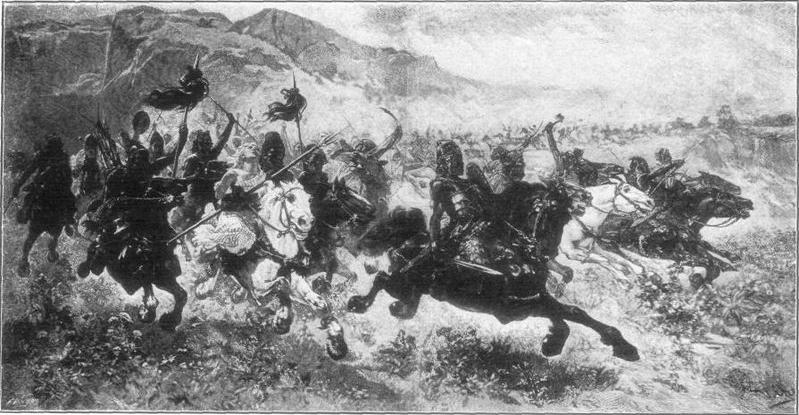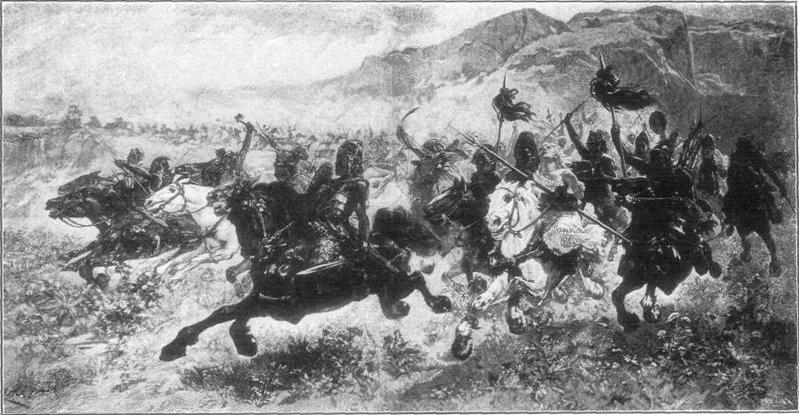This site is dedicated to exploring the histories and cultures of those groups of people who are so often classified as "barbarians." One of the most familiar examples are those tribal peoples who invaded the Western Roman Empire during its decline and fall. And in the Far East there are those various non-Chinese peoples who attacked Imperial China over a period spanning many centuries. When they were successful in their conquests they often formed an empire of their own. Or they succeeded in taking over the very empire they had invaded, only to be swallowed up by it. Actually, the same could be said for the "barbarians" of the remainder of Eurasia. Most Europeans today, for example, have barbarian ancestors.
What exactly is a barbarian? According to Webster's New Collegiate Dictionary, there are two definitions for the adjective barbarian:
- of or relating to a land, culture, or people alien and usually believed to be inferior to one's own
- lacking refinement, learning, or artistic or literary culture
- barbarian
- barbarianism
- a person who is alien and usually believed to be inferior
- a person lacking refinement, learning, or artistic or literary culture
- a person who is a member of social group or culture that is regarded as being alien and usually believed to be inferior
- a person who is a member of a social group lacking refinement, learning, or artistic or literary culture
But here one distinction we can make for the "barbarians" is that they they were usually not among those who wrote down what passes now as the records of history. Indeed, what passes for human history is almost entirely the "History of Civilization", meaning mostly the history of those peoples who were literate enough to record their own history. For the history of those societies not so literate, we must depend almost entirely on what their more literate contemporaries had to say about them. So again we find that "barbarian" people and cultures can exist only in relation to cultures and peoples having a "higher standard" of civilization, albeit the one true distinction is that the "higher standard" is one of literacy and some means of preserving or passing on a significant records of their history.


